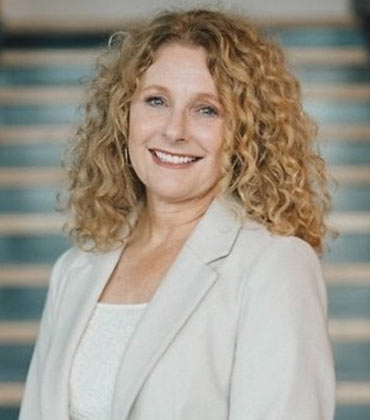THANK YOU FOR SUBSCRIBING
Purposeful leadership drives organizations to achieve transformative outcomes. This guiding principle lies at the core of Whitman Consulting. Led by founder and CEO Andre W. Thornton, the firm bridges individual purpose with organizational goals, empowering leaders and teams to realize their full potential through innovative, measurable strategies and bespoke training programs. This synergy fosters personal fulfillment and collective growth. Drawing on his 25 years of experience, including 15 years in senior leadership roles and 18 years at Lockheed Martin, Thornton combines deep expertise with a mission to drive measurable improvements in trust, culture, targeted behavioral change and organizational performance. With a focus on these critical areas, Whitman Consulting helps businesses, particularly in manufacturing and technology, thrive and lead with purpose. “At Whitman Consulting, we don’t just train leaders—we transform organizations through innovative, results-driven strategies. Our commitment is to empower businesses of all sizes with premium, cost-effective leadership solutions that drive measurable success,” says Thornton. Strategy development marks the beginning of Whitman Consulting's commitment to its clients—a dedication that extends throughout the implementation process and fosters lasting partnerships to ensure sustained impact. It focuses on delivering measurable outcomes that generate clear returns on investment through a distinct blend of high-level expertise and cost-effective solutions. Each engagement begins with discovery conversations and in-depth assessments, offering critical insights into organizational dynamics. These insights form the basis for strategies uniquely designed to address specific challenges. For instance, when a client struggled with team collaboration, Whitman Consulting tailored its approach to prioritize cohesion, showcasing its ability to adapt and deliver precision-driven solutions.
Chad Dresnick, an expert in human resource information systems enables organizations to unlock the full value of their HCM software and maximize their ROI. Driven by a ‘client-first’ approach, Dresnick is a trusted partner bringing innovative, personalized and forward-thinking solutions that address their current business challenges and prepare them for future growth. Backed by 25 years of industry experience, Dresnick caters to a prestigious clientele, including not-for-profit 501(c)(3) organizations, regional businesses, and major corporations. Having worked with dozens of industries across North America and Europe, he combines technical proficiency in HR, payroll, and time and attendance with creative problem-solving to deliver high-impact, innovative solutions. Whether it’s digitalization, data migration, system integration, interim payroll processing or providing keen attention to workforce management systems, each solution is tailored to enhance operational efficiency and meet the distinct needs of clients via a concierge-level service. Clients benefit from comprehensive system implementation, which helps them operate HCM smoothly and effectively. Excellent on-site support and customized training help clients build internal expertise in navigating the system. “I train clients to effectively use the system. With accurate data reporting, they can confidently move forward without requiring further support,” says Chad J. Dresnick, Principal. The true measure of Dresnick’s success lies in enhanced operational efficiency and client self-sufficiency after system implementation. Technical Precision that Drives Operational Excellence Implementing an HCM system is often stressful for HR teams occupied with their full-time responsibilities. He eliminates the additional bandwidth needed to manage the HCM system. By intently listening to clients and understanding their challenges, he tailors well-formulated and result-driven service. Working closely with clients and their HCM system providers enables a streamlined process with the ability to proactively identify potential issues before they arise. The partnership begins by extracting data from the legacy system, identifying any missing or incorrect information, and resolving inconsistencies. Next is the data validation stage, where the data is thoroughly verified for accuracy, compliance and consistency, minimizing errors and reducing the need for client review. During system configuration, he ensures compliance with state and local regulations, and regular check-ins confirm that the solutions provided continue to meet clients’ changing needs.
As a company that has helped numerous SMBs across the board modernize their HR operations, it is a no-brainer that GoCo has become a household name today. It is renowned across the HR technology landscape for pioneering a comprehensive approach to workforce management. The company’s eponymous, all-in-one human capital management (HCM) solution consolidates essential functions like onboarding, benefits, payroll and streamlining processes. But GoCo’s journey is defined as much by its mission as by the features it brings to the table. For Nir Leibovich — the company’s co-founder and CEO — the inspiration for GoCo was deeply personal. This seasoned entrepreneur had observed a recurring pattern across organizations. Most departments relied on tools for efficiency. Sales used CRMs, finance had accounting software and marketing thrived with automation. Yet, one department seemed left out of this tech-driven evolution—HR. Leibovich’s realization came during his time as chief business officer at his previous company, where he frequently collaborated with the HR administrator, Josie. He’d drop by her office to brainstorm ways to enhance the workplace. “Josie, how about we launch a program to strengthen our culture?” he’d suggest, or, “Let’s revamp our performance reviews to make them more impactful.” Josie would meet his enthusiasm with a tired look and gesture toward a large stack of paperwork beside her desk. “I’d love to, Nir,” she’d say, “but I can’t. If I don’t finish this, we’ll face compliance issues. There’s just no time.” It frustrated him to see her potential wasted on repetitive tasks instead of driving the meaningful, people-focused work she was passionate about. Leibovich stepped in to streamline processes. “The process of improving HR workflows drew me in,” says Leibovich. “I felt compelled to start a company that can liberate Josies of the world from endless paperwork. That mission is at the heart of GoCo’s inception.”
Organizations face a critical challenge in today’s dynamic business landscape: developing and retaining exceptional leaders who can drive success at all levels. To achieve this, they seek development programs that go beyond theoretical concepts and deliver measurable results. Too often, traditional training programs follow a generic one-anddone approach that fails to produce realworld, actionable outcomes. Carole Stizza, founder and executive coach of Relevant Insight, brings a unique perspective to this challenge. She draws from her extensive career in human resources and deep understanding of what employees need from their leaders. She is a Senior Certified SHRM Professional, a Professionally Certified ICF Coach, and has a Master’s in Industrial Organizational Psychology. With her foundation in IndustrialOrganizational Psychology and diverse HR experience gained across multiple organizations—from talent acquisition and development to executive HR leadership roles managing billion-dollar accounts— Stizza has witnessed firsthand how coaching to improve leadership characteristics directly impacts talent retention and organizational success. “My experience has shown me that traditional leadership development often misses the mark,” says Stizza. “We need approaches that understand the leader’s growth journey, time constraints, and realtime impact on employee engagement and retention- even while learning.”

Patrick Yearout, Director of Innovation, Recruitment & Training, Ivars Restaurants

Bridget Hawkins, Director of HR Compliance and Employee Relations, Hood Container

Heather Frommack, Head of Learning & Development (Internal Title: Learning and Development Manager), Titan America
AI transforms leadership by enhancing decision-making, employee engagement, strategic planning, resource optimization, and fostering inclusive, transparent cultures.
HR technology enhances employee experience, efficiency, and strategic goals through AI, VR, flexible work, and blockchain.
A Unified Approach to Organizational Success
Workforce management focuses on optimizing human resources through effective scheduling, productivity monitoring, and talent deployment. On the other hand, leadership development nurtures individuals who can inspire and guide teams, fostering a culture of continuous improvement. When combined, these two elements create a dynamic environment where employees are not just managed but are also motivated to grow and contribute meaningfully to the organization.
Strategic workforce planning ensures the right talent is in place for current and future business needs. By identifying high-potential employees early and providing leadership training, organizations can build a robust pipeline of future leaders. Aligning these two aspects prevents leadership gaps and fosters internal career growth. A strong leadership pipeline contributes to business continuity. Workforce management strategies must integrate succession planning to prepare future leaders who can step into critical roles seamlessly. This proactive approach mitigates risks associated with sudden leadership vacancies and ensures sustained growth.
With the rise of AI-driven workforce analytics and digital training platforms, companies can make data-driven decisions regarding staffing, performance management, and leadership development. Smart technology can track employee engagement, identify skill gaps, and provide personalized learning paths for leadership training.
For organizations to thrive in today’s competitive environment, workforce management and leadership development must go hand in hand. Effective workforce strategies ensure operational efficiency, while leadership programs nurture a culture of empowerment and innovation. By fostering a symbiotic relationship between these elements, businesses can cultivate a workforce that is not only productive but also poised to lead the organization into the future.
A unified approach to workforce management and leadership development is no longer a luxury but a necessity for sustainable success.